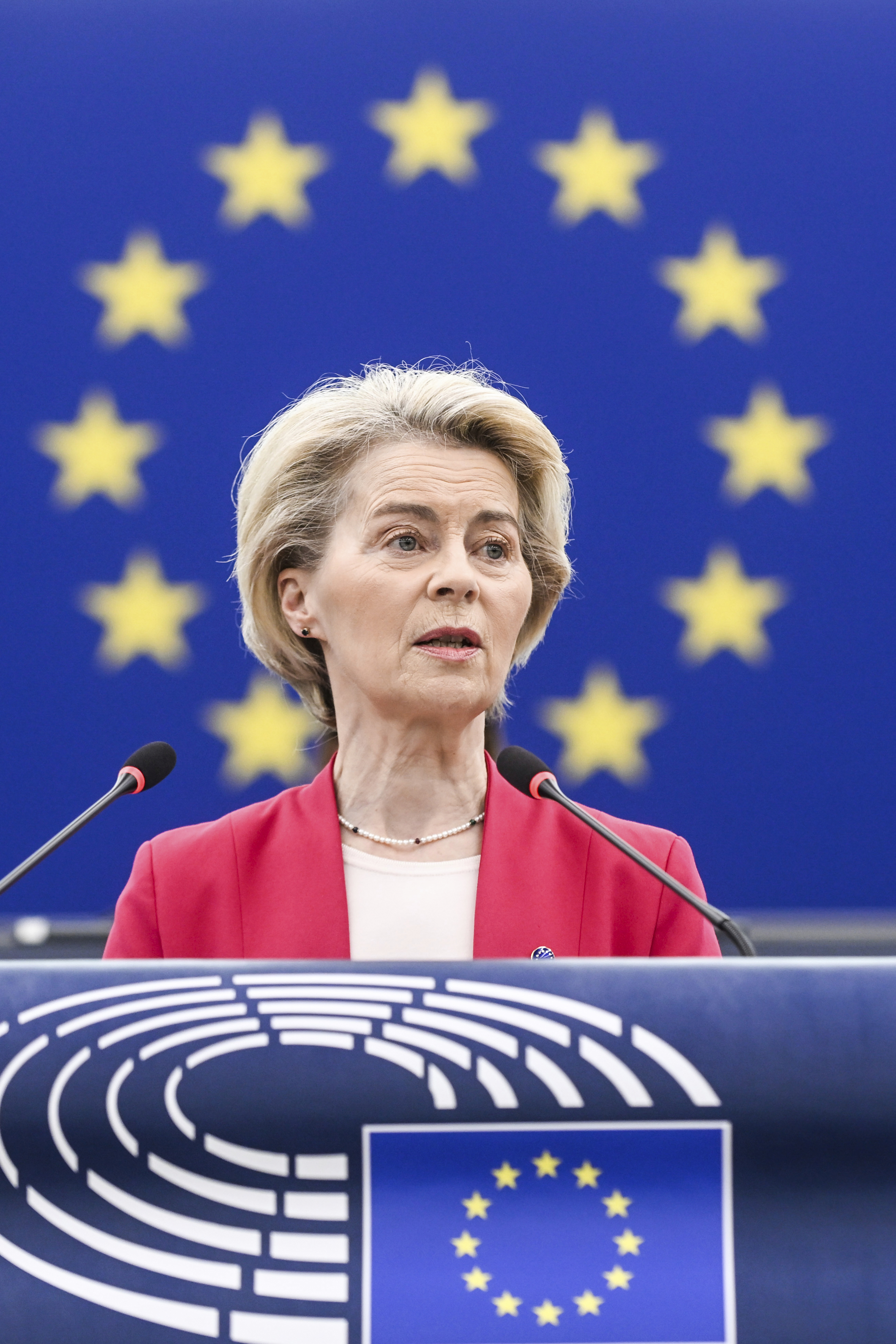"We have a list of products with high symbolic value, which do not cost us much, but will cost the United States. This includes agricultural products such as soybeans, which are significantly produced in Louisiana, home of the Speaker of the US House of Representatives, Mike Johnson." This is how EU sources explain what the European Union's response will be to Donald Trump's trade war, which, in addition to amounting to 26 billion euros, aims to be "smart" and hit "where it hurts the most": in typically Republican states that are crucial for the US president.
"We are also talking about meat products such as beef and poultry, which are important sectors in states like Nebraska and Kansas," they continue in Brussels, emphasizing that the imposition of tariffs on products from these places is completely "intentional." In Alabama, timber production is important, an area that is also in the sights of the Commission, they add in the European capital. In addition to targeting these purebred Republican states, decisions are also being made regarding swing states. A classic example is Georgia, where the European Commission also aims to act by targeting its timber sector.
The Commission's intention with this strategy is twofold. On the one hand, for companies and citizens in these purebred Republican states to suffer the consequences of the trade war: higher prices, negative impact on activity, and ultimately, economic problems. On the other hand, for the political representatives of this area to somehow pressure Trump to relent on his tariffs, although this is unlikely to concern the magnate too much. Additionally, in these swing states, the population that supported the Republican party may not do so in the upcoming elections.
"But we are also targeting products from industrial sectors such as appliances, household kitchens, ovens, refrigerators, freezers, or lawnmowers. The same goes for soybeans and meat products. We have many alternatives. We love soybeans. We are happy to buy them from Brazil or Argentina," they emphasize at the Commission. At this point, we need to look back a few months, when the President of the European Commission, Ursula von der Leyen, accelerated the agreement with Mercosur, which had been stuck for 25 years and created "the largest free trade area in the world." But above all, it gave the EU an alternative and a very powerful weapon to respond to Trump, who at that time was already the president-elect, and in Brussels, they were already fearing the tariff battle that has indeed begun.
"As of this morning, the United States is applying a 25% tariff on steel and aluminum imports. We deeply regret this measure. Tariffs are taxes. They are bad for businesses, and even worse for consumers. These tariffs disrupt supply chains," said Von der Leyen yesterday morning when announcing the European response. "They bring uncertainty to the economy. Jobs are at stake. Prices will rise. In Europe and in the United States. The European Union must act to protect consumers and businesses. The countermeasures we are taking today are strong but proportionate. While the US imposes tariffs worth 28 billion dollars, we respond with countermeasures worth 26 billion euros," emphasized the German senior official.
The head of the European Commission explained that the EU's actions will be divided into two stages. The first, which will come into effect on April 1, will allow the suspension of the existing countermeasures from 2018 and 2020 against the US to expire on April 1, adding the first 8 billion in tariffs and directly affecting products such as bourbon, Levi's jeans, or Harley-Davidson motorcycles. The second stage will result from a new package of additional countermeasures that will come into effect in mid-April, "after consulting with the Member States and stakeholders," adding another 18 billion. Overall, these actions will be guided by the premise of being "smart" and hitting "where it hurts the most."
